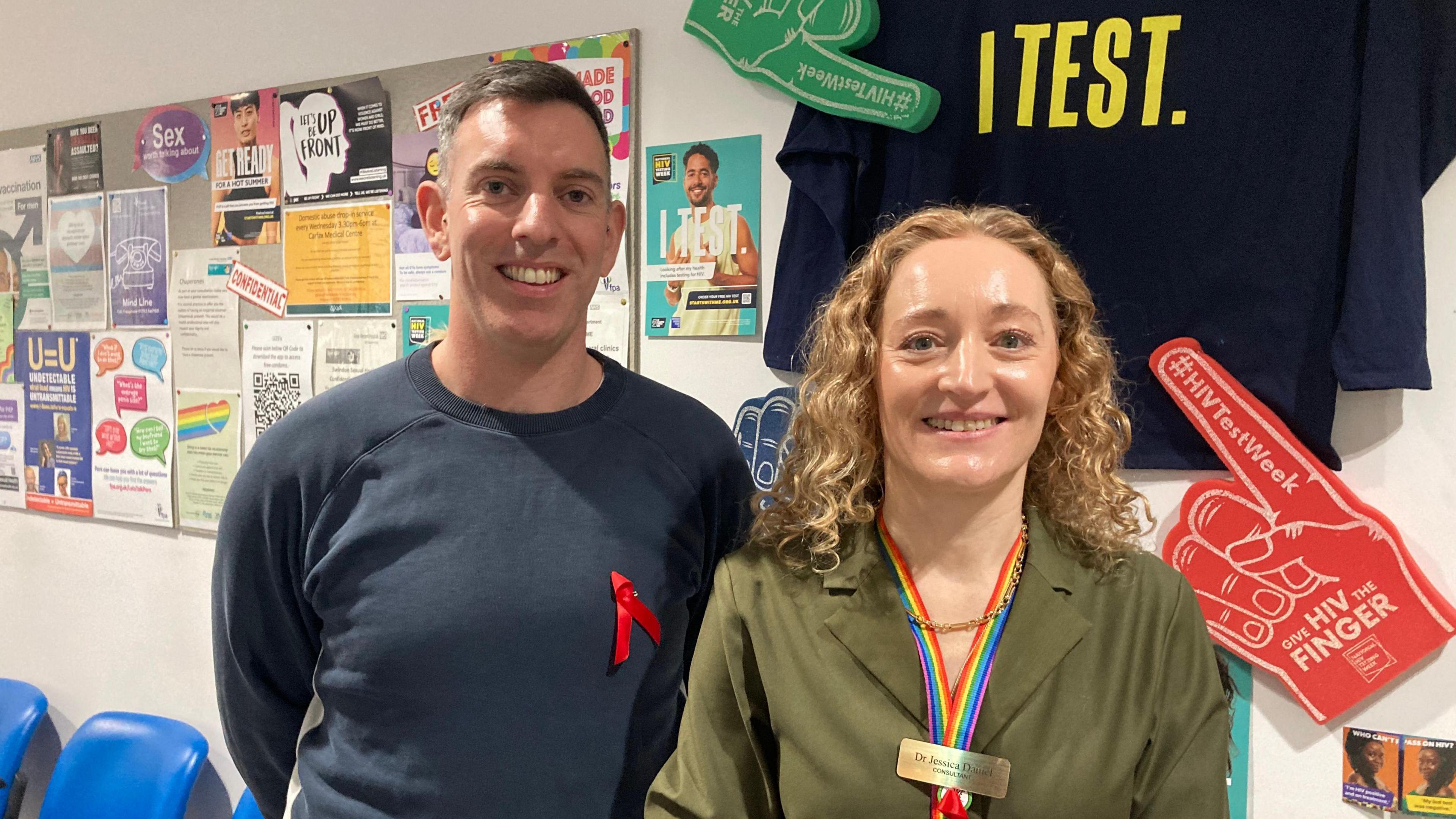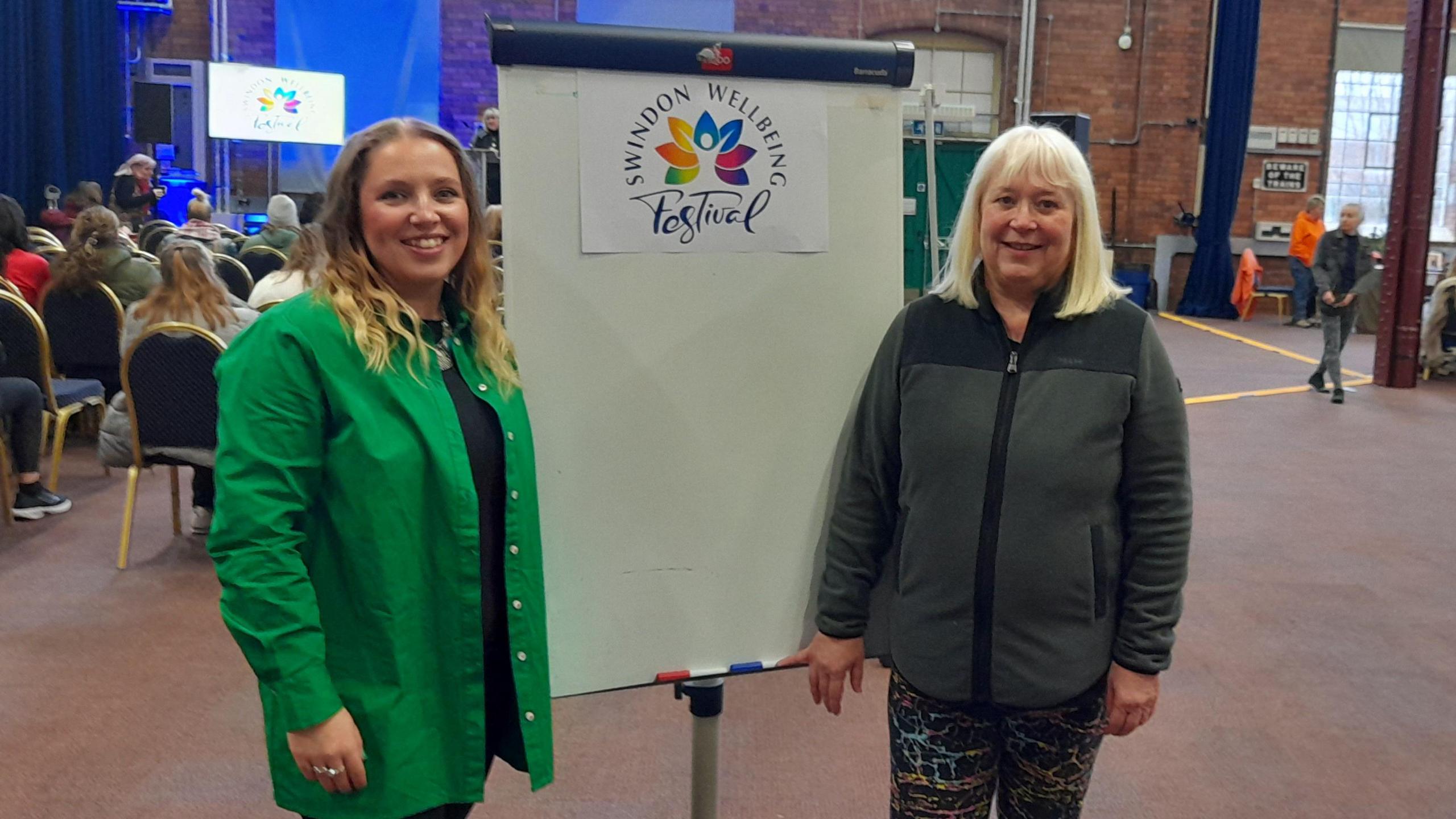Hospital tackles HIV stigma with week of testing

Patient Joshua Anderson and Dr Jess Daniel, from Swindon's Great Western Hospital, are raising awareness of the realities of HIV
- Published
A hospital is encouraging its patients to help remove the stigma around HIV by making use of its tests.
Swindon's Great Western Hospital is carrying out "opt-out" testing from 10 to 16 February, which means that all patients are automatically tested for HIV unless they choose not to be.
Doctors and HIV patients are urging people not to opt out as they raise awareness during HIV Testing Week.
Around 5,000 people in the UK are believed to be carrying the disease unknowingly and the government wants to eliminate new HIV diagnoses in England by 2030.
Joshua Anderson was in his 20s when he received a surprise diagnosis a decade ago.
He said: "When I went for a routine sexual health test, I was very ignorant of HIV, I thought it wasn't relevant."
After testing positive, he began treatment and although he still requires regular medication, he lives a relatively normal life.
'Misleading stereotypes'
Mr Anderson said he has had the support of his friends and family throughout, but as Great Western Hospital sexual health consultant Dr Jess Daniel explains, patients do not always feel able to share their diagnosis.
She said: "There's a lot of hangover from the 1980s and 1990s around what living with HIV means.
"People are really fearful that if they are diagnosed with HIV, that's the end of their life.
"It's really important to break down those myths and misconceptions because someone diagnosed with HIV now, if it's at an early enough stage, will have a completely normal life expectancy."
Dr Daniel also warned that stereotypes about age and sexuality were misleading.
"The type of people being diagnosed with HIV are generally middle aged, in their late 40s and early 50s," she said.
"Of the 12 new HIV cases detected in Swindon last year, 100% of patients were heterosexual, 50% male, 50% female, with the misconception in the past being that it only affects gay men."
Mr Anderson added that normalising testing was the first step in normalising HIV and that was ultimately the best way to remove stigma surrounding the disease.
Get in touch
Tell us which stories we should cover in Wiltshire
Follow BBC Wiltshire on Facebook, external, X, external and Instagram, external. Send your story ideas to us on email or via WhatsApp on 0800 313 4630.
Related topics
Similar Stories
- Published8 February

- Published11 February
